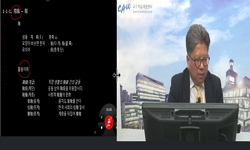Korea and Japan belong to the cultural sphere of Chinese character which has shown its long and indispensable existence in both countries. However, in the semantic range of Chinese words or their directions, some remarkable differences have arisen in ...
http://chineseinput.net/에서 pinyin(병음)방식으로 중국어를 변환할 수 있습니다.
변환된 중국어를 복사하여 사용하시면 됩니다.
- 中文 을 입력하시려면 zhongwen을 입력하시고 space를누르시면됩니다.
- 北京 을 입력하시려면 beijing을 입력하시고 space를 누르시면 됩니다.

文學作品飜譯에 나타난 日本語 漢字語의 誤譯事例와 그 類型 = The Essential Examples of Mistranslated Chinese Words in the Korean Translation of Japanese Literature : Sorekara of Soseki Natsume
한글로보기https://www.riss.kr/link?id=A105782003
- 저자
- 발행기관
- 학술지명
- 권호사항
-
발행연도
2005
-
작성언어
-
- 주제어
-
KDC
747
-
등재정보
KCI등재
-
자료형태
학술저널
-
수록면
95-129(35쪽)
- 제공처
-
0
상세조회 -
0
다운로드
부가정보
다국어 초록 (Multilingual Abstract)
Korea and Japan belong to the cultural sphere of Chinese character which has shown its long and indispensable existence in both countries. However, in the semantic range of Chinese words or their directions, some remarkable differences have arisen in each country. Those differences have been produced by the language policy of each country with the different backgrounds while passing through ages.
This paper attempts to illustrate some essential examples of the mistranslation of Chinese words that appear in the Korean translation of Japanese literature. What needs to be emphasized here is that the translators do not have enough knowledge on the peculiar Japanese usage of Chinese words and on the different meaning or semantic range of Chinese words used in each country. This fact causes mistakes on the translation.
For analysing the causes which resulted in mistranslation, this paper uses the text SOREKARA of Soseki Natsume and two Korean versions of it. This paper also aims at providing certain ideas in theorizing the methodology of education in the field of translating Japanese into Korean.
목차 (Table of Contents)
- Ⅰ. 들어가는 말
- Ⅱ. 연구방법과 범위
- Ⅲ. 오역의 유형과 사례
- Ⅳ. 맺음 말
- 인용문헌
- Ⅰ. 들어가는 말
- Ⅱ. 연구방법과 범위
- Ⅲ. 오역의 유형과 사례
- Ⅳ. 맺음 말
- 인용문헌
- Abstract
동일학술지(권/호) 다른 논문
-
공손성 원리에 입각한 한-중/중-한 번역의 직시어 연구
- 한국통번역교육학회
- 한정은(Han Jeong Eun)
- 2005
- KCI등재
-
- 한국통번역교육학회
- 이상원(Lee Sang Won)
- 2005
- KCI등재
-
Corpus in Translator Education : A Pilot Study
- 한국통번역교육학회
- 남원준(Nam Won jun)
- 2005
- KCI등재
-
- 한국통번역교육학회
- 김정우(Kim Jeong Woo)
- 2005
- KCI등재




 스콜라
스콜라






